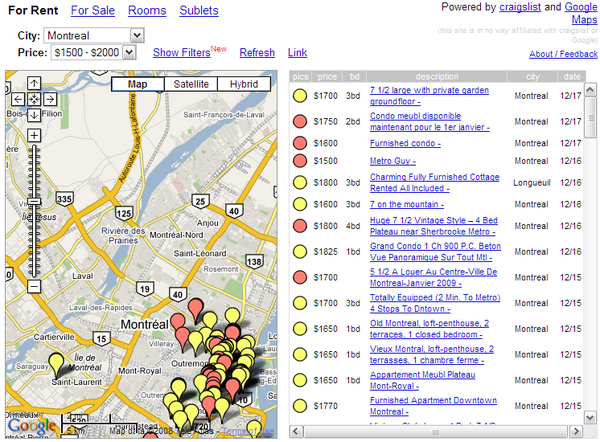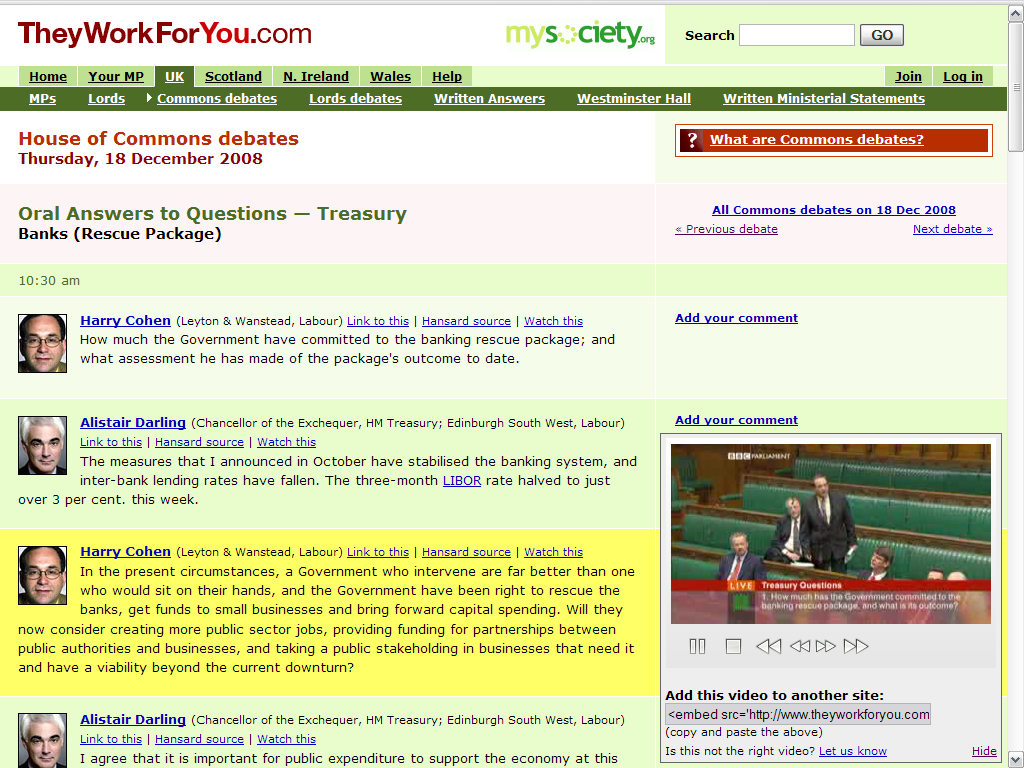Internet interventions
Jump to navigation
Jump to search
These are roughly organized potential Internet (and technology) based interventions, that should be considered in combinatin.
Access and inclusion
- Access to internet through hotspots, free wireless (Île sans fil), cellular networks
- Access to specialized software - business, publishing, analysis, communications
- Refurbished computers
- Orientation and training
- Cloud computing - infrastructure (file storage, word processing, etc) based on Internet servers rather than computer applications.
- Free/open source, creative commons, terms of use - legal means to make data or applications restricted or freely re-usable and leverage-able for successive projects
- Anonymity and privacy
- Accessibility - Making information available to users with different requirements - good basic designs, use of standards, enablers such as screen readers
- Transparency and accountability
- Individually selective publishing of data
- Crowdsourcing - opening up project development to the general or selected public through common interest or contests
- Adapt content and software to local languages and cultures, plain language
Data
- Mashups - combining data sources and views - for example, http://www.housingmaps.com combines the rental data from craigslist with the map interface of Google Maps. This model can be easily used for any geographically situated data.
- Agents, software that can collect, analyze and react to external data and events
- Liberation - making content that should (eg, government, personal health, etc) be available for re-use available - eg theyworkforyou and publicwhip which “scrape” government published UK parliament proceedings and breaks them down by member, votes, and other factors allowing for direct linking, commenting, analysis, and general reuse of data
- Collaborative information creation - http://www.wikipedia.org , http://www.everything2.com - Wikis and rich text editors
- Semantic content - http://edition.cnn.com/2008/TECH/12/17/db.semanticweb/ - more finely specific content that can be aggregated, queried and reused reliably across the internet - clearinghouse for reusable data?
- Data sovereignty - issues around a government or institution (eg hospital) working with a foreign company (eg the US government by law gains access to data HP provides support for)
- Standards - formal and ad-hoc - use of proprietary (Microsoft) document formats by public institutions, that require recipients to buy (or steal, through piracy) particular, expensive applications, especially when they are not suitable (eg document doesn't need to be edited, so use PDF, text or HTML) or free alternatives exist (OpenOffice), making data easily reusable
- Distributed problem solving - use small amounts of support from many individuals (or computers) to solve larger problems - eg Gutenberg Project to type in important public domain books, LibraVox to create public domain audio books.
Communications
- Email, discussions, personal, group and broadcast chat, presence and status
- Peer to peer networking
- Communities (of practice, interest) - provide relevant information and social software
- Social software - Facebook, MySpace, etc - allow individuals to self-organize by interest and connection
- Ubiquitous (ambient) computing - low cost distributed computers and sensors (eg cameras, audio, etc) that can be used for measuring, monitoring, etc. eg community safety, environment.
- Commenting - allow commenting on local or third party content
- Deliberation - allow polling and rated conversation to drive research, decision-making (Votorola), policy, etc
- Citizen media
- Event organizing
- Automated telephone systems (IVR) - Murmur project records audio neighborhood histories, “switchboard” translation services
- Voice over IP (VOIP) - enabling low cost global communications with computer enhancements
Visualization
- Geo mapping - useful for identifying sites of interest. eg crime areas, political boundaries, transportation, etc.
http://www3.thestar.com/static/googlemaps/homicidemap.html
- Entity mapping - http://www.theyrule.net, FOAF - Standards and techniques for understanding and navigating individuals, organizations, etc. and their relations. Contrast theyrule.net, which visualizes the interrelated players who make decisions on global corporate boards, with a “wetry.org” (Lenczner) type organization to visualize non-profit organizations.
- Analysis - scraping/parsing, organizing and processing data.
- History / timelines

